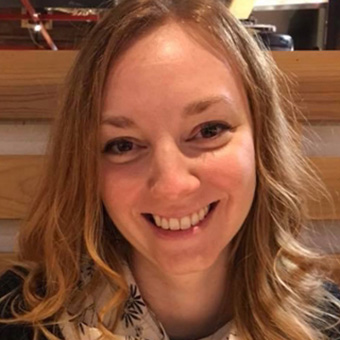Emily Vetter, MA’11, Anthropology and Women’s, Gender, and Sexuality Studies
 Senior Project Manager, Office of the Provost at Harvard University
Senior Project Manager, Office of the Provost at Harvard University
Can you describe your career path and how it has led to your current work?
After graduating, I started a career path in higher education administration. I love working in higher education and find that I am happy supporting research and education from beyond the classroom. Over the past nine years, I have moved from one project-focused role to the next and am now a Senior Project Manager at Harvard in the Office of the Provost. Even before entering my master’s program, I had a suspicion that I wouldn’t continue on to a PhD program right away. During my master’s program, I made sure that I was developing skills that would position me for an administrative career in higher education. These choices helped me gain a competitive edge in consideration for administrative roles.
What services and/or resources did you use while at Brandeis for your career search? (i.e. The Center for Career and Professional Development, program administrators, professors, peers etc.)
While at Brandeis, I attended conferences, lectures, and talked with professors and other people about their career path and goals. From these conversations, I gained a better understanding of the various career paths available to people in higher education with master’s degrees. Towards the end of my program, I began to take advantage of the resources offered through the Center for Career Development. They helped me think through next steps and develop larger career goals. We also went through a mock interview which proved to be tremendously helpful once I was on the job hunt.
What skills from your Brandeis degree have you found most valuable in your current work?
My master’s degree was most beneficial by training me to undertake self-motivated research and writing. There will always be a demand for people with writing and research skills. And who doesn’t prefer to work with someone who is self-motivated?
What advice do you have for current students as they embark on their job search?
Try to approach your education as a career investment – because that’s what it is. It is easy to forget you’re training for a career, but don’t lose sight of the fact that you’re about to jump into a competitive landscape. Keep the end result in mind and work towards your goals. Even if you aren’t entering the field in which you received your degree, there are many valuable and marketable skills you’ve picked up along the way.






